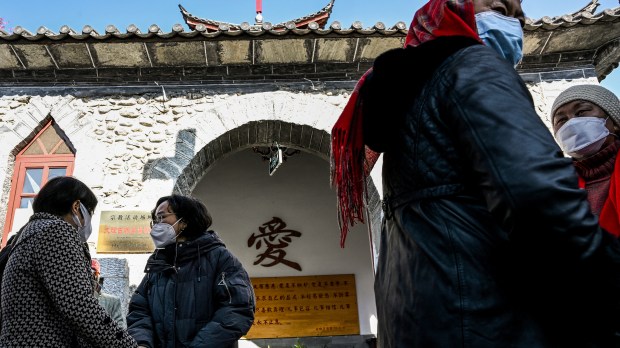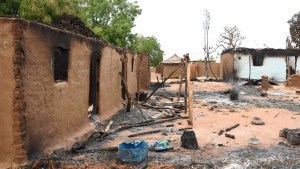An American religious freedom watchdog group recommended that the U.S. Department of State designate 17 nations as “Countries of Particular Concern” (CPCs), including five countries that have not been on the list: Afghanistan, India, Nigeria, Syria, and Vietnam.
The United States Commission on International Religious Freedom (USCIRF) issued its annual report Monday, also recommending the redesignation as CPCs the following 12 countries: Burma, China, Cuba, Eritrea, Iran, Nicaragua, North Korea, Pakistan, Russia, Saudi Arabia, Tajikistan, and Turkmenistan.
USCIRF is a creation of the International Religious Freedom Act (IRFA), which defines CPCs as countries where the government engages in or tolerates “particularly severe” violations of religious freedom.
World’s most populous nations on the list
In November, the U.S. State Department designated 12 countries as CPCs, including for the first time Cuba and Nicaragua.
But it did not include Nigeria and India, a fact that elicited disappointment from USCIRF. The commission had recommended CPC status for Nigeria since 2009 and India since 2020.
In the world’s two most populous nations – India, with an estimated 1.4 billion people, this year surpassed China in being Earth’s largest – religious freedom conditions continued to worsen in 2022, the report said.
In China, a new law banning religious content on the internet; the arrest and prosecution of retired Hong Kong bishop Cardinal Joseph Zen; and the forced detainment of Catholic priests and bishops who refused to join the government-controlled Chinese Catholic Patriotic Association.
In India, the government at the national, state, and local levels promoted and enforced religiously discriminatory policies, including laws targeting religious conversion, interfaith relationships, the wearing of hijabs, and cow slaughter, which negatively impact Muslims, Christians, Sikhs, Dalits, and others, USCIRF said.
The destruction of property — including places of worship in predominantly Muslim and Christian neighborhoods — continued, said the report. In February, Hindu nationalists bulldozed a Catholic center near Mangalore and attacked, looted, and destroyed the homes of hundreds of Christians in December for their refusal to convert to Hinduism.
From the Caribbean to the Crimea
Religious freedom conditions in Nicaragua worsened considerably in 2022, noted the report. The government of Nicaragua, under President Daniel Ortega and Vice President Rosario Murillo, escalated its campaign of harassment and severe persecution against the Catholic Church by targeting clergy, eliminating Church-affiliated organizations, and placing restrictions on religious observances. The Ortega regime made several high-profile moves against Bishop Rolando Álvarez of Matagalpa and Estelí. Following multiple instances of harassment in spring and summer, in August police conducted an early-morning raid on Bishop Álvarez’s church in Matagalpa, detained him, and put him under house arrest.
The government also prevented Church-affiliated organizations and services from operating. The National Assembly ordered the revocation of the legal status of a Catholic university and several Catholic educational and charitable projects in the city of Estelí and later approved a law that would strengthen its control over educational institutions and strip funding from the Jesuit-run school Universidad Centroamericana.
In May, the Nicaraguan Institute of Telecommunications and Postal Services (TELCOR) ordered the removal of the Episcopal Conference of Nicaragua’s Catholic Channel. In its place the regime began airing Nicarao TV, widely perceived as a propaganda network. TELCOR also ordered the closure of at least eight radio stations operated by the Catholic Church. In August, police in Sébaco forcibly entered the chapel where Radio Católica operated and seized broadcast equipment.
In June, the government canceled the legal status of the Missionaries of Charity for allegedly failing to declare the origins of its funding and forced the nuns to leave the country.
Similarly, conditions in Cuba “worsened” in 2022, the report said. Havana tightly controlled religious activity through surveillance, harassment of religious leaders and lay persons, forced exile, fines and ill treatment of religious people of conscience.
In September, Jesuit Fr. David Pantaleon, head of the Society of Jesus in Cuba and president of the Conference of Religious Men and Women in Cuba, had to leave the country after the government refused to renew his residence permit. During an interview in his native Dominican Republic, Fr. Pantaleon reported that the Cuban Office of Religious Affairs cited his support for political prisoners and the Jesuits’ critical position toward the regime as the main reasons for his expulsion.
In Nigeria, religious freedom conditions remained poor, with “both state and nonstate actors committing particularly severe violations of religious freedom,” USCIRF said. “While some officials worked to address drivers of religious freedom violations, others actively infringed on the religious freedom rights of Nigerians, including by enforcing blasphemy laws. Criminal activity and violent armed group incidents impacting religious freedom worsened.”
The report acknowledged that federal authorities “accelerated efforts to address violence impacting religious freedom, including by institutionalizing harsher punishments against perpetrators, improving military efforts to neutralize Islamist fighters in the north, and strengthening efforts to investigate and arrest perpetrators of the most egregious attacks.” But it said that the effectiveness of these efforts remained in question, while in some regions state and local officials failed to fully prosecute individuals who incited mob violence against alleged blasphemers.
Religious freedom conditions in Russia continued to decline, USCIRF reported, with authorities increasingly prosecuting members of religious minority communities. Vague laws such as prohibitions of “undesirable organizations” continued to give authorities broad powers to outlaw religious groups, prosecute individuals based on their religious speech or religious activities, and ban religious literature deemed “extremist.” The government also continued to fine Protestants, Catholics, Muslims, Orthodox “Old Believers,” and others for illegal missionary activities and other violations of various restrictions.
Russia’s invasion of Ukraine has added a new layer to these existing trends.
“Ukrainian religious communities living in areas invaded by Russia experienced gross religious freedom violations perpetrated by Russian forces,” the report said. “Several reports document Russian military personnel threatening, detaining, disappearing, and torturing religious figures in order to exert control and influence over local populations. In the first six months of the war, at least 20 religious figures were reported killed and another 15 kidnapped. Russian artillery and gunfire regularly destroyed and damaged Ukrainian places of worship and other religious facilities. By December, the United Nations Educational, Scientific, and Cultural Organization (UNESCO) had verified damage to at least 102 religious sites, with other organizations reporting damage to more than 300.”
It goes on to say that in March, Russian soldiers in Kherson reportedly beat, strangled, and sexually assaulted a priest of the Orthodox Church of Ukraine until he agreed to cooperate with them. In June, Russian artillery struck the Svyatohirsk monastery complex in the region of Donetsk, killing two monks and a nun.
Though the report does not contain a separate section on Ukraine, it addresses several issues that have arisen in the country since Russia’s February 24, 2022, invasion. It points out that Ukrainian authorities in 2022 “increasingly scrutinized the Ukrainian Orthodox Church-Moscow Patriarchate (UOC-MP). The Security Service of Ukraine (SBU) searched hundreds of UOC-MP churches and other religious facilities and opened criminal proceedings against dozens of clergy for collaborating with Russian authorities, spreading pro-Russian propaganda, or justifying Russia’s invasion of Ukraine.”
In reaction to the Russian invasion, the UOC in May declared its “full independence and autonomy” from the Moscow Patriarchate. Yet, in November, a group of Ukrainian parliamentarians proposed a bill that would ban the Russian Orthodox Church (ROC) and religious organizations subordinate to the ROC, cancel property contracts with ROC-aligned religious organizations, and regulate the use of the term “Orthodox” by religious groups. In December, President Volodymyr Zelenskyy ordered his Cabinet of Ministers to submit a bill to parliament that would make it “impossible for religious organizations affiliated with centers of influence in the Russian Federation to operate in Ukraine.”
“While the Ukrainian parliament had not passed any such legislation banning religious groups by the end of 2022, its potential to still do so remained a serious concern,” USCIRF said.
Background
Under IRFA, particularly severe violations of religious freedom mean “systematic, ongoing, [and] egregious violations . . . , including violations such as (A) torture or cruel, inhuman, or degrading treatment or punishment; (B) prolonged detention without charges; (C) causing the disappearance of persons by the abduction or clandestine detention of those persons; or (D) other flagrant denial of the right to life, liberty, or the security of persons.”
Other categories USCIRF uses in its annual assessment include a Special Watch List (SWL). IRFA defines the SWL for countries where the government engages in or tolerates “severe” violations of religious freedom. Although the IRFA statute does not specifically define severe violations of religious freedom, in making SWL recommendations USCIRF interprets it to mean violations that meet two of the elements of IRFA’s systematic, ongoing, and egregious standard (i.e., that the violations are systematic and ongoing, systematic and egregious, or ongoing and egregious).
USCIRF this year recommended maintaining on the SWL Algeria and the Central African Republic and including the the following nine countries on that list: Azerbaijan, Egypt, Indonesia, Iraq, Kazakhstan, Malaysia, Sri Lanka, Turkey, and Uzbekistan.
The commission also recommended redesignating seven non-state actors as Entities of Particular Concern (EPCs): al-Shabaab, Boko Haram, Hay’at Tahrir al-Sham (HTS), the Houthis, Islamic State in the Greater Sahara (ISGS), Islamic State in West Africa Province (ISWAP also referred to as ISIS-West Africa), and Jamaat Nasr al-Islam wal Muslimin (JNIM).
To meet the legal standard for designation as an EPC, a nonstate group must engage in particularly severe violations of religious freedom and must also be “a non sovereign entity that exercises significant political power and territorial control; is outside the control of a sovereign government, and often employs violence in pursuit of its objectives.”


